Accelerating Entrepreneurship Support in Universities in Kenya
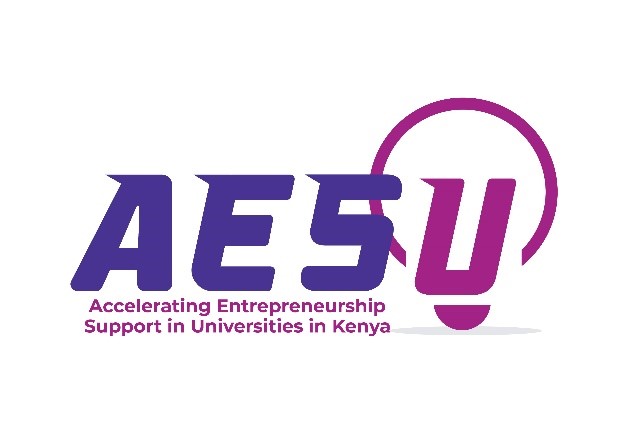
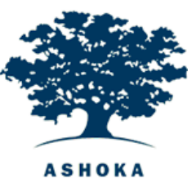
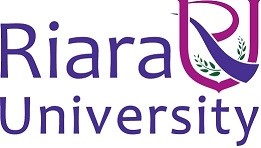
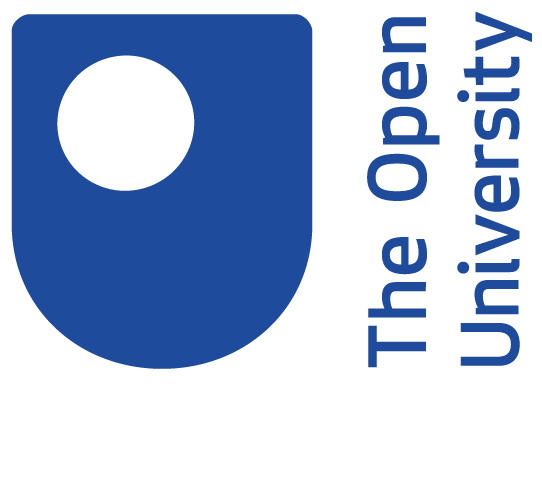
Project Aims
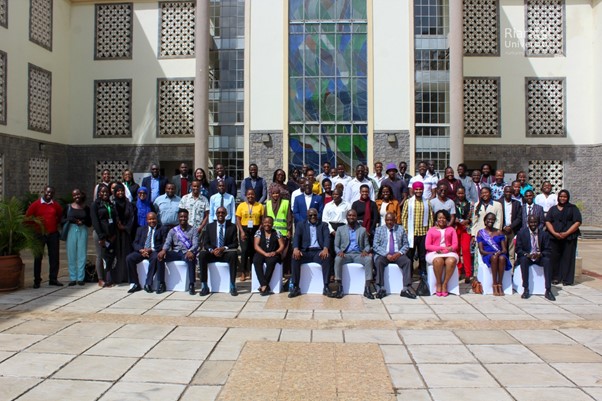
Source: AESU project website - Our Gallery - Accelerating Entrepreneurship Support in Universities in Kenya (AESU) (riarauniversity.ac.ke)
Through establishing and operating a virtual Accelerator, the partnership will renew and adapt the curriculum with a view to producing enterprising graduates who are capable of securing employment and/or commercialising locally developed innovations that harness digital technology and contribute to addressing the climate emergency in Kenya.
The Accelerator will impact cohorts of graduates and student start-ups who will be able to either gain direct employment or empowered to access and act on available resources to successfully establish, manage and grow social and commercial enterprises in their home environment.
For Phase 1 (October – December 2021), the partnership will draw on ongoing action research and capacity-building workshops to design and develop a plan for setting-up a virtual Accelerator at Riara University.
For Phase 2 (January – September 2022), the network will support the piloting of the Accelerator and undertake strategic initiatives to enhance its long-term sustainability. Professional identity development will also be supported.
The AESU partnership website hosted at Riara University can be found here: Home - Accelerating Entrepreneurship Support in Universities in Kenya (AESU) (riarauniversity.ac.ke)
Acceleration programme development of professional identity
Building on the OU team’s expertise on professional identity development and inter-organisational collaborations (Dr Kourti) and entrepreneurial qualities (Dr Ngoasong and Dr Wahga), the team designed interventions that built and strengthened the partners’ professional identity development for entrepreneurial business emergence. Accelerating interventions that extended in a variety of areas, such as financial, networking, training, mentorship and community building, and had an impact on the entrepreneurial personality, supported the development of partners’ entrepreneurial identity and enhanced partners’ entrepreneurial activities.
The OU team also conducted a qualitative longitudinal study exploring the process of building an entrepreneurial identity in a university-led ecosystem that consists of various inter-organisational partners. The interviews and consultations with the partners demonstrated that the development of entrepreneurial identity was happening in a continuum rather than in a fixed sequence. Each inter-organisational partner was viewed as a unique individual entrepreneur creating in a unique way their professional entrepreneurial identity through the accelerating programme events and activities.
Main project events
Led by Ashoka East Africa, with blended (online) working expertise provided by the OU team, the following events were delivered:
-
Accelerator Launch: The Programme was launched on 25th April 2022 at Riara University
-
Nairobi Innovation Week Launch: The student entrepreneurs with AESU Members get an opportunity to share their innovations and products by showcasing them in the exhibition booths, which featured Startups and innovations for African Universities. They also attended various panel discussions.
-
The Demo Day: Demo Day was a special day for the AESU programme, the entrepreneurs had an opportunity to tell their stories and pitch their businesses to potential investors who were present during the day.
-
AESU Dissemination Day: Final dissemination event for the completion of the project.
Acceleration programme activities
As part of the educational partnership, the educational partnership facilitated the following activities that aimed to support the entrepreneurial development and strengthen the professional identity of the project participants:
-
Training (Ideas to reality sessions, change maker journey and using business functions for business acceleration) for skills development and education
-
Financial support for each participant to support the start-ups development or initiation
-
Mentorship for capability building and support
-
Networking and community building
-
Pre- and post-acceleration interviews
Project outcomes
The OU team worked closely with Riara University and Ashoka East Africa for the achievement of the following outcomes:
-
Blended learning programme within a virtual accelerator. The project team created a fully-integrated AESU website, with technical requirements such as a “Student start-up Hub”, a closed online course on entrepreneurship and innovation the CANVAS platform at Riara University. The AESU website has sections for mission, activities, services, social media and links to external partner websites and resources.
-
A full innovative online course on entrepreneurship and innovation for delivery. The new course enables Riara University academics to develop skills in creating curriculum for blended learning, including the creation of short video/audio recordings, while providing a useful content to sustain the accelerator programme.
-
Co-deliver entrepreneurial learning through blended learning events. To develop the capacity of academic staff to sustain blended learning, 60 academics at Riara University, have already enrolled on Open University’s course: “Take your teaching online”. 12 student-led business went through group lessons, pitching, advice or mentoring sessions over a six-month acceleration period. Three stakeholder engagement events, to launch the accelerator (March 2022), a ‘Demo Day’ to show student start-up businesses to local ecosystem stakeholders (June 2022) and the final dissemination event (August 2022). These hybrid events (face-to-face and online) engaged other universities, policy and industry practitioners, with outputs made available as links on AESU’s webpage.
-
Policy brief. The project uncovered the university structures and operations that can inform policies relating to entrepreneurial universities in Kenya, with reference to the attainment of four UN SDGs, namely: (1) to strengthen the means of implementation of partnership for sustainable development (SDG 17); (2) multi-stakeholder dialogues explore how partnerships can be more impactful in influencing policies; (3) one-to-one consultations with representative stakeholders to inform a model depicting how the partnerships operating within Kenyan universities can be self-sustaining as regional innovation hubs that contribute to employment creation (SDG 8) and (4) propose innovative methods for reinforcing quality education by disseminating knowledge on how partnerships tackle the tensions that require cross-cultural learning (SDG 4).
-
Strengthening professional identity of university-led ecosystems: The project demonstrated that there is no fixed or pre-described entrepreneurial identity that the prospective entrepreneur could aim for, but there are many constituting factors in the continuum of the ecosystem that could lead in direction of business emergence, creation and growth. A university-led ecosystem consisting of inter-organisational partners could support entrepreneurial identity development through accelerating interventions that extend in a variety of areas, such as financial support, knowledge building, networking, training, mentorship and community building. Depending on the entrepreneurial profile and needs of each partner, these interventions could in different combinations support the development of the entrepreneurial identity while also having an impact on the entrepreneurial profile of the ecosystem inter-organisational partners.
Project dissemination
The project activities and outcomes were disseminated through several venues
-
Riara University Technical Lead interviewed by a Kenya-based YouTube channel: https://www.youtube.com/watch?v=l3wPdmvty94
-
OU monthly newsletter: https://www.open.ac.uk/ikd/news/accelerating-entrepreneurship-support-universities-kenya
-
AESU partnership launch: https://innovateafrica.world/page/aesu
-
AESU participation on IAU Programme panel discussion at Nairobi Innovation Week: https://www.riarauniversity.ac.ke/aesu/2022/04/28/nairobi-innovation-week-launch/
-
AESU Demo Day on 21 July 2022: https://www.youtube.com/watch?v=7N0pknWhXwY
-
AESU Final dissemination event on 15 September 2022: https://www.youtube.com/watch?v=YkyZSRx22co
Strengthening university-led ecosystems for sustained innovation and entrepreneurship
To widen the impact of the AESU partnership, a community engagement project was undertaking to increase policy engagement towards enabling universities in Kenya to develop university-led ecosystems for local development. The project is a collaboration between the Open University (UK), African Technology Policy Studies (ATPS) Network and Riara University in Kenya.
Many factors influence the decision of young student entrepreneurs to start a business. These can be either internal or external factors influenced by the risks and rewards of doing so. Fears and risks are more evident for university students with no prior business experience and entrepreneurship skill set. For this reason, universities should support entrepreneurial behaviour and professional identity development among students to encourage the creation of sustainable innovation start-ups and spin-offs between academic and business environments. This support is largely lacking in universities in Kenya.
Our community building project promotes university-led ecosystems as anchoring institutions for delivering self-sustaining innovation and entrepreneurship education while supporting entrepreneurial identity development, specifically for the Kenyan universities participating in the Innovation for African Universities Programme.
The project has uncovered the university structures and operations that can inform policies relating to entrepreneurial universities in Kenya, with reference to the attainment of four UN SDGs, namely: (1) to strengthen the means of implementation of partnership for sustainable development (SDG 17); (2) multi-stakeholder dialogues explore how partnerships can be more impactful in influencing policies; (3) one-to-one consultations with representative stakeholders to inform a model depicting how the partnerships operating within Kenyan universities can be self-sustaining as regional innovation hubs that contribute to employment creation (SDG 8) and (4) propose innovative methods for reinforcing quality education by disseminating knowledge on how partnerships tackle the tensions that require cross-cultural learning (SDG 4). A Policy Brief documents key findings and recommendations for policy and practice.
Project Partners
| The Open University Business School | Riara University, Kenya | Ashoka East Africa | Africa Technology Policy Studies (ATPS) Network |
|---|---|---|---|
|
Principal Investigator: Dr Aqueel Wahga |
Acting Deputy Vice Chancellor – Academic Affairs & Dean, School of Business |
Regional Director, East Africa |
Executive Director, ATPS |
| Researcher: Dr Isidora Kourti |
Dean for Students, Riara University |
Monitoring and Evaluation Expert |
|
| Researcher: Dr Aqueel Wahga |
|||
|
Researcher: |
Funding body
British Council inaugural Innovation for African Universities (IAU) programme 2021
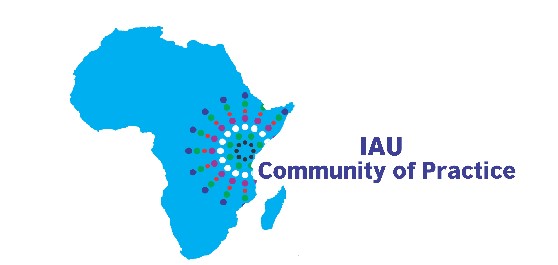
For more information, contact the Principal Investigator, Dr Aqueel Wahga at [email protected]
